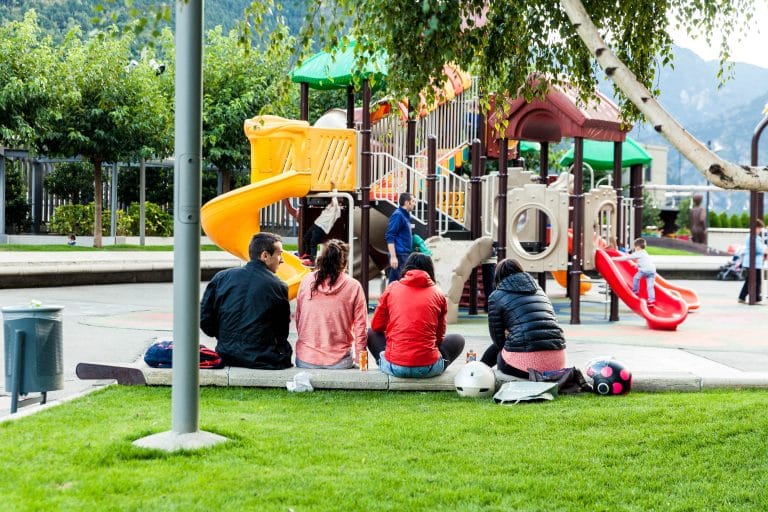How to Support Your Own Children with Fostering – 31st October 2019
A single individual can foster, to learn more visit Who Can Become a Foster Parent page. In this piece we are focusing on the marvellous contribution siblings can offer to a foster child.
Be it immediate or extended family, each member must be aware of the challenges and rewards of fostering. Our topic today is with reference to biological children and how they too need to feel heard and understood when welcoming a foster child into their family unit.
Patricia, a wonderful FFI foster Mum shares her story with us. Patricia is blessed with 3 impressive children now aged between 12 and 16. They commenced the fostering journey as a family, 6 years ago after seeing a newspaper advertisement. From the outset, each child was consulted and informed fully on the process.
Fostering is a journey of apprehension, growth, excitement, challenges and generally jam packed with emotion. All children on the journey biological or foster child must be able to vocalise concerns or issues at any juncture and feel heard.
Patricia remembered from her own youth in the 80’s a family friend who fostered children, she was intrigued by the new arrivals as a kid. She therefore understood and was able to articulate to her own children that they were very fortunate with the family they were born to, and that some other kids were just not as lucky. She explained that some parents cannot cope for a multitude of reasons, all private, and so their family was in a position to help someone less fortunate than themselves.
In fact, the greatest challenge that Patricia and her kids encountered was that of having to say “Goodbye!” to a foster child. As is sometimes the case, a placement ends because the child can return home or they must move on to the next stage of their journey. Patricia’s family’s first placement, was an emergency one for a teenage girl, she moved on after 7 weeks and that was tough on everyone to say Goodbye. After that placement the family sat down and reviewed how they did, what they could do better and how they had to perhaps be realistic, that they could not solve every problem for every child that joined their family.
The learning curve is always there for the entire family, for example, with dialogue they learnt from a placement that it was imperative to have rules of privacy early on. Each child was entitled to have their own space and it had to be respected by all siblings.
It is natural also for certain roles to become apparent amongst siblings. Patricia laughs when she explains her eldest daughter very much plays a tough Mammy role, keeping her brothers in check, whilst her second daughter assumes the role of the nurturing Mammy, possibly spoiling them a little. The two boys have a totally normal brother to brother relationship, either they love each other or they are waging sibling battles.
The young person in Patricia’s care luckily has a super relationship with his birth Mother facilitated by Patricia to the point that she attends Christmas day lunch with the family and is, in fact considered very cool by all her kids for being young and on trend. Because he gets quality time with his Mam and goes for sleepovers, Patricia is very conscious that her own kids are also getting quality time with her to maintain equilibrium. Patricia feels there is a big advantage to fostering where the kids are close enough in age to grow up together, to learn about sharing and how to be part of a family.
Leading by example, Patricia is sure that her kids will go on to foster themselves in their adult lives because the experience has been so positive for them. They all feel the process to become a foster family is extremely stringent, but fair, in that each member of the family, parents and children are interviewed separately and their views considered thoughtfully.
In total the family have had 4 placements and several respites. As mentioned above, for them they very much feel it is harder to say Goodbye! than Hello!
Fostering First express gratitude to all children in foster families in the form of Christmas events, fun summer days out and interactive workshops. This is because we understand the success of a placement is hugely about sibling input as well as parenting.
In sum up we asked Patricia what she did to make her kids so well rounded, even into teenage years which can be fraught for any young adult.
Her answers included
- Handling the fostering process with openness and positivity.
- Making it very clear that she is not her children’s best friend, but she is their Mammy.
- Impressing upon them, to always treat people with respect.
- Offering an open-door policy in their home, friends are welcome to come and go as long as they are respectful.
- Encouraging their interest in music
- Making sure that communication is always open without reproach for all children.
- Enabling Fostering First to reward her children for their contribution.
- Calling upon the allocated social worker to check in with all the children.
- Facilitating attendance at Fostering First Event Days.
- Encouraging the children to make the most of Fostering First Workshops
If you are interested in sharing your family with a foster child, do please visit https://www.fosteringfirstireland.ie/contact-us/
Thank you for taking the time to read this piece and thank you to Patricia for sharing her family’s story with us.


